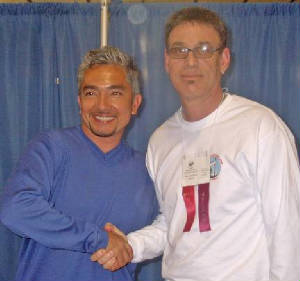Puppies tend to nip and bite. It is their way of being playful, and occurs with all puppies but is especially common with herding breeds. Nipping occurs for a variety of reasons – instinct, boredom, teething – and it can certainly be cute and fun at first. But for pet owners, the bites can become increasingly more painful and irritating as the puppy’s teeth grow sharper.
It’s not uncommon to want to get the bites under control, to reduce the chance of injury to you and your family. There are many over the counter products available that claim to assist with puppy nipping, but the best place to get the product you need isn’t at the pet store, but at the grocery store. In order to reduce the frequency of puppy nipping, the best tool you can use is a lemon.
Lemons for Puppy Nipping Aversion
 Lemon may sound like a simple choice. But lemon has advantages that even some pet store compounds cannot provide, and of course it is also cheaper and more easily accessible – perfect for those that want to get started right away.
Lemon may sound like a simple choice. But lemon has advantages that even some pet store compounds cannot provide, and of course it is also cheaper and more easily accessible – perfect for those that want to get started right away.
Lemon has a powerful odor and taste that can help deter dogs from puppy nipping. Citrus fruits, in general, have chemical compounds that most dogs find unpleasant. With such a strong sense of smell, lemon is capable of deterring many nipping behaviors.
Also, while dogs do tend to eat almost anything, they have a strong distaste for lemon. And because lemon is natural and safe, spraying it on your socks or other items is not going to leave behind any chemicals or toxins.
How to Create a Lemon Nipping Aversion Spray
All you need is lemon, water, and a spray bottle. Squeeze out the lemon in a bottle, add some water, and then spray on socks, toes, or other items that your puppy is nipping and the nipping will be more likely to stop.
TIP: When and How to Use Lemon Nipping Aversion Spray
Spraying lemon on your items will already act as a deterrent. But lemon is also one of the safer tools you can use to create a negative association with your puppy. If you do get nipped, immediately (but gently) open your dog’s mouth and spray some of the mixture inside.
Your dog will not like the taste of the lemon, and will be more likely to control nipping in the future so as to avoid that taste. However, keep in mind that this type of behavior should be as close to immediate as possible, and should not be preceded by a “Come” or “Sit.”
Your dog will only associate the lemon with nipping if there is nothing that occurs in between. If you call your puppy over, then spray their mouth, they’ll associate it with coming to you and not with the nipping behavior.
Finally, once you’ve sprayed it into your puppy’s mouth, they’ll recognize the smell and taste on you in the future. Spray it on your toes, shoes, socks, etc., and your puppy will be very likely to avoid it.
For more dog training tips, or to get training of your own from Marc Goldberg, renowned dog trainer and author of Let Dogs Be Dogs, contact Chicago Dog Trainer today. Remote/online options are available for those that live away from Chicago.





